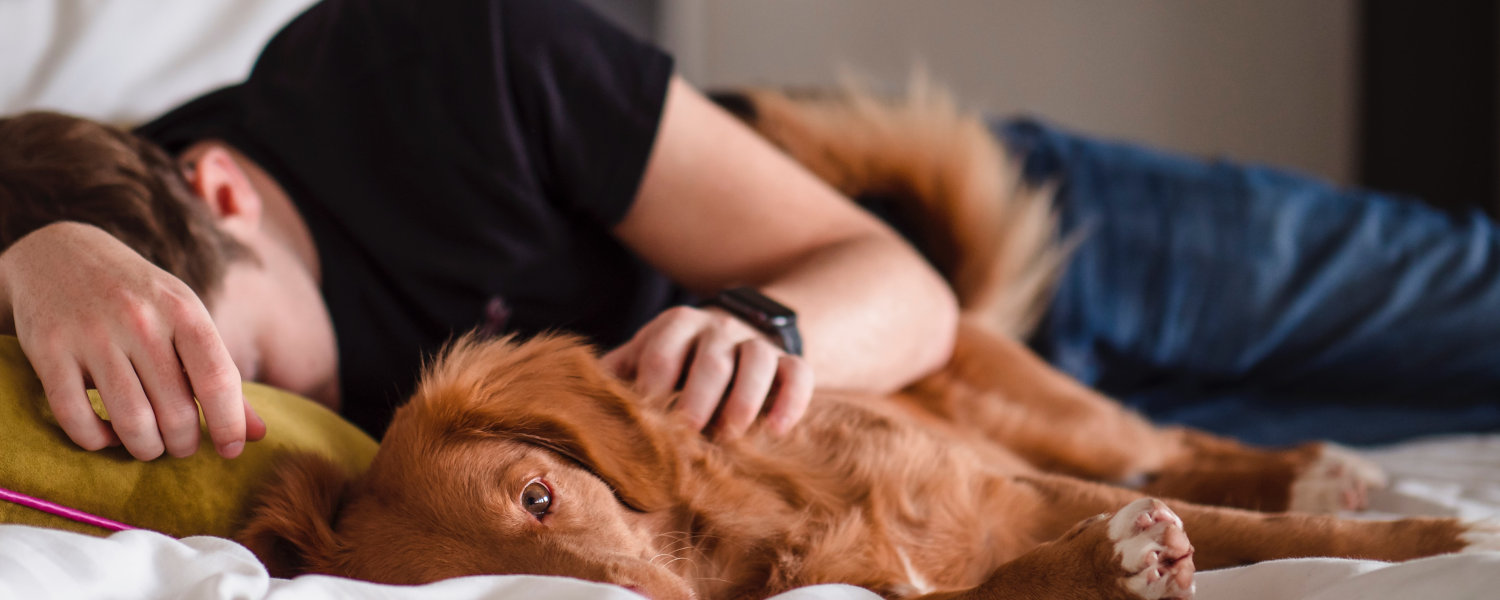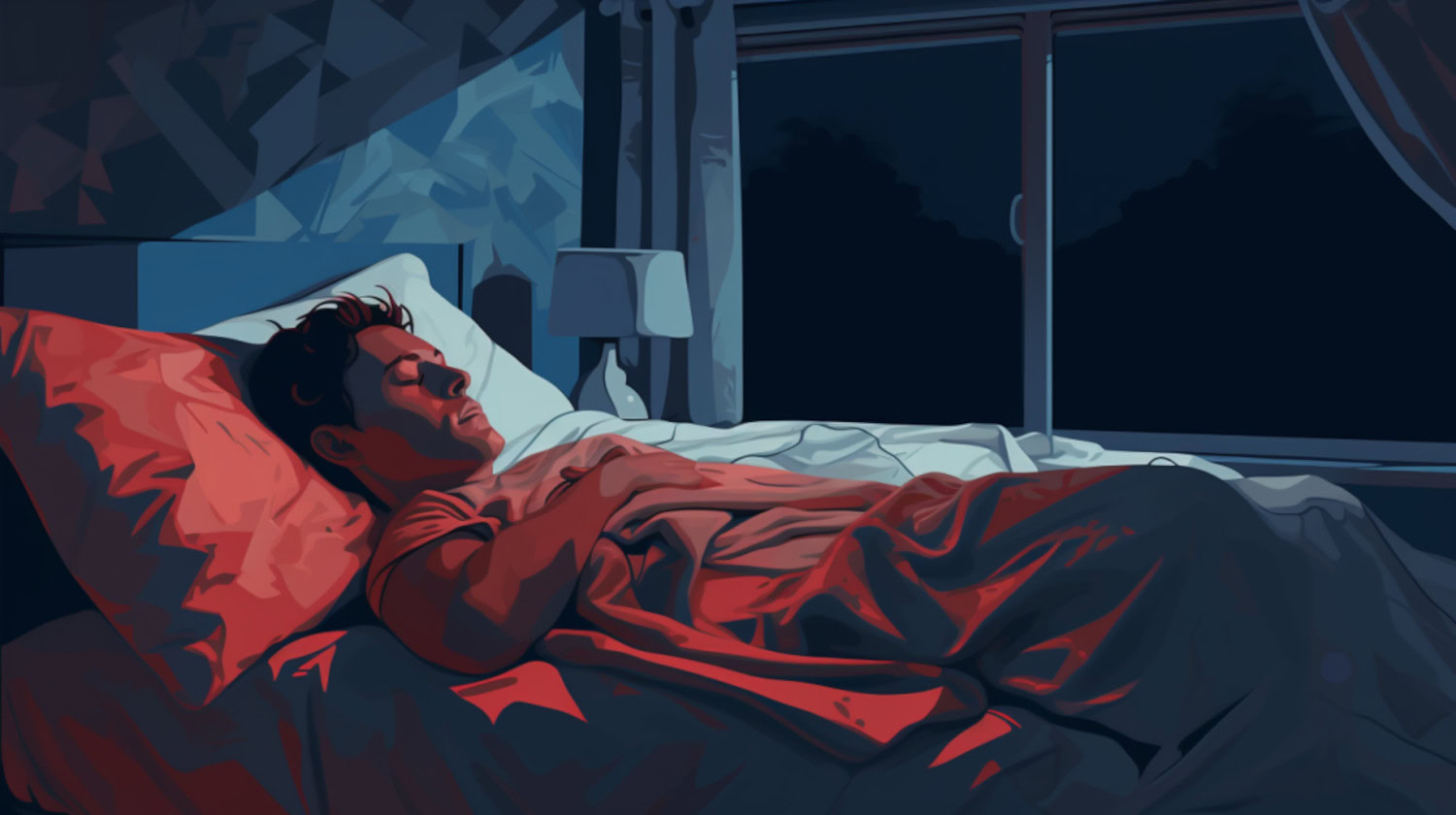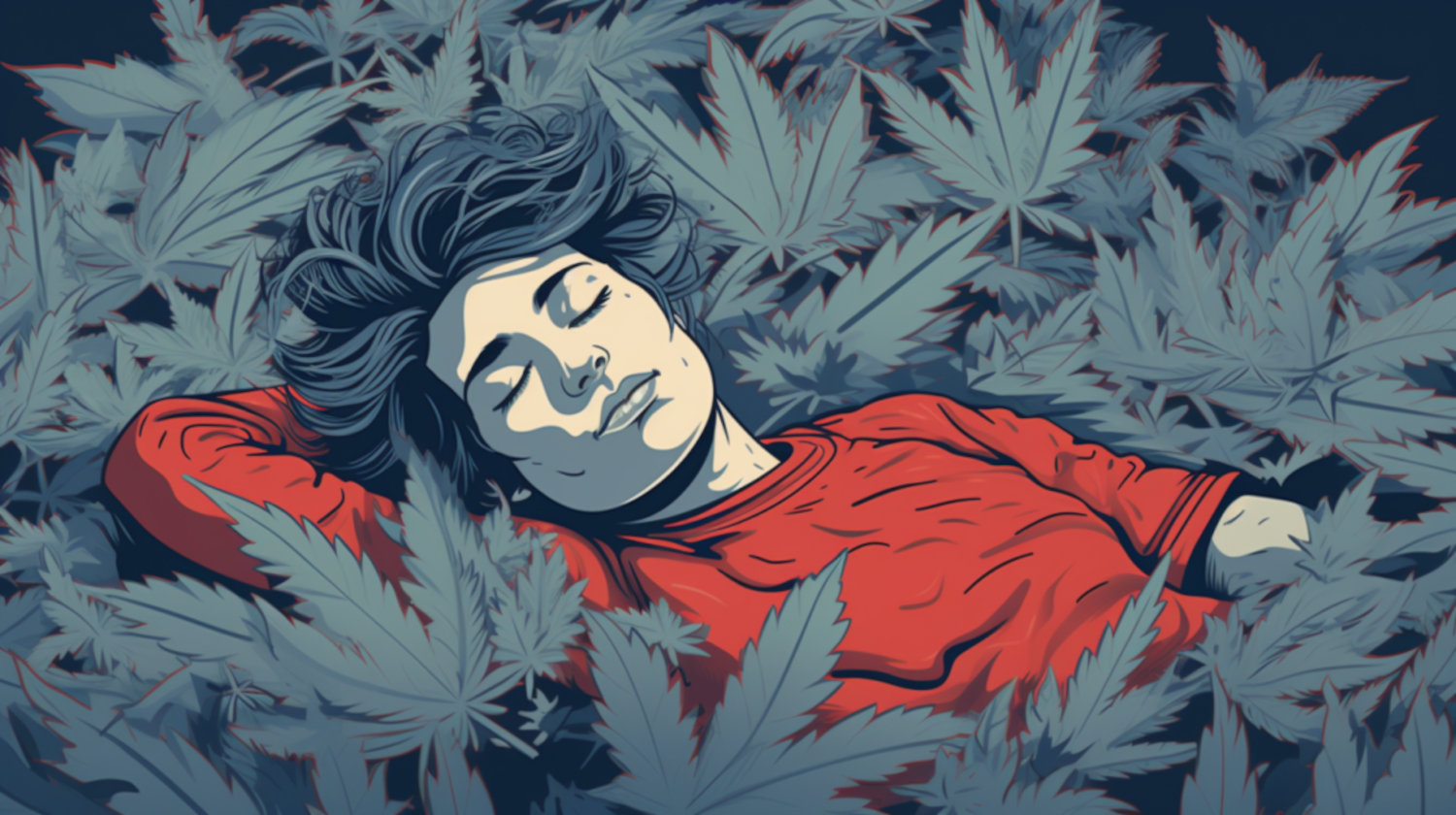In This Article
- Can Edibles Help as a Sleep Aid?
- The 11 Best Edibles for Sleep
- Cannabis-Infused Gummies for Sleep (Dreamt)
- Dream Lavender Mints 3:1 (Mr. Moxey’s Edible)
- Cacao Keto Bites 1:1 (Pantry)
- Sleep CBN Tablingual (Level)
- Rest, CBD Soft Gels (Care By Design)
- Midnight Blueberry Camino, 5:1 CBN (Kiva)
- Shut Eye Tin, Sleep & Serenity (Kin Slips)
- Tranquility 1:1:1 (Kanha)
- Dark Chocolate Bar, Mega Mini (Chill)
- Strawberry 20:1 (Wyld)
- Dark Chocolate Pomegranate, Sleep (Papa & Barkley)
- Why Choose Edibles for Sleep?
- Tips for Using Edibles for Sleep
Humans spend roughly one-third of their lifetime sleeping, making a good night’s rest an essential part of a healthy lifestyle. Unfortunately, many people struggle to get the recommended 7-8 hours for various reasons, from poor habits, work, and lifestyle, to chronic pain, mental health, or disorders like insomnia.
Sleep issues are one of the most common reasons people use cannabis. The plant and its infused products are widely praised by consumers for their potential to provide relaxing, pain-relieving, and sedating effects. And with the boom in cannabis legalization, there are countless high-quality products designed to help people get the sleep they need, each with its own unique benefits.
We review some of the highest-rated cannabis products consumers are using to get some much-needed rest and relaxation. And keep scrolling for essential consumer tips to help ensure you have the best possible experience.
Can Edibles Help as a Sleep Aid?
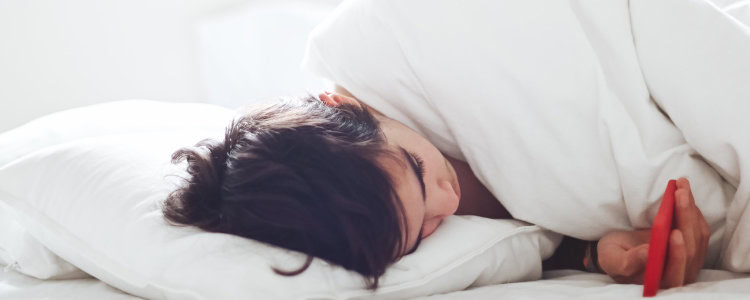
Issues related to sleep can be caused by more than one factor in a person’s life. Finding aid or relief can require the individual to endure episodes of trial and error with different forms of medications and therapies. Many people in their journey to restful slumber have noted cannabis’ ability to provide a wide range of effects, which made it more appealing as a potential catch-all solution to help aid in their sleep-related issues.
Cannabis is a plant rich in over a hundred natural cannabinoids and terpenes that are being studied for their potential medical applications. The two most studied, well-known, and sought-after compounds in the plant are THC and CBD.
Potential therapeutic effects of THC include:
- Pain relief
- Insomnia relief
- Anxiety treatment
- Mental relaxation
- Nausea alleviation
- Muscle relaxation
Potential therapeutic effects of CBD include:
- Pain relief
- Reducing inflammation
- Anxiety relief
- Mental relaxation
- Sleep aid
Consumers have reported these benefits from a wide variety of consumption methods, including smoking, vaping, tinctures, and edibles. Edibles have become the go-to consumption method for many patients seeking help with sleeping issues and related conditions. While edibles can take longer than other forms of cannabis to take effect for most users, they also deliver heavier body effects, ideal for some people struggling with sleep.
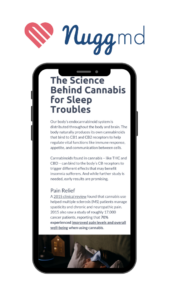
Fall asleep faster and wake up feeling more rested with our comprehensive (and completely free) patient’s guide to medical cannabis for sleep troubles.
Traditionally, cannabis has been consumed through smoking, using tools like a pipe or bong, dry herb vaporizer, or rolling the dry flower into joints. These methods require that the dry flower be lit with a heating device, usually a flame.
This heating process changes the chemical compounds in the plant. THC and CBD don’t start out as THC and CBD. The cannabis plant produces mostly THCA and CBDA, non-intoxicating compounds that may have their own benefits. Once heated, THCA and CBDA are broken down into THC and CBD through a process called decarboxylation (sometimes shortened to decarbing). When smoked, THC and CBD are absorbed through the lungs and enter the bloodstream directly, delivering their therapeutic benefits.
Edibles, however, are processed differently in the body. To make edibles, the cannabis material must first be decarboxylated and infused into an ingredient, such as oil, butter, or sugar. It can also be processed into a concentrate, like distillate, and infused into foods.
The cannabinoids enter the body through the digestive system and are metabolized by the liver into 11-hydroxy-THC. 11-hydroxyTHC is thought to be significantly more potent than the delta-9 THC that comes from smoking, vaping, tinctures, or just about any other method of using cannabis. While the onset time of effects for edibles is generally longer than other methods (taking anywhere from 30 minutes to 2 hours), many consumers, especially those attempting to get deep rest, find the results are worth waiting for.
The variety of flavors and food options makes edibles accessible and discreet way to consume cannabis. There is also variety in the different formations of cannabinoids they can be infused with. Depending on the type of relief you need, edibles come in ratios from high-THC to high-CBD and everywhere in between. They can also be infused with other isolated cannabinoids, like CBN, which has been theorized to help induce sedating effects.
THC¹ is a biphasic molecule, meaning that in low doses the effects differ from high dosages. Thankfully, consumers have reported that both microdoses and high-potency edibles can be helpful in getting rest and easing ailments to sleep better. Which dose works better for you depends on various lifestyle factors and your specific needs.
The wide range of consumer needs and goals when taking cannabis or edibles for sleep can make a doctor’s input that much more important, especially if you suffer from sleep disorders or other health issues or are taking medication. While cannabis can have therapeutic benefits, adverse effects are also a risk. A qualified medical marijuana doctor can help you find the right product and dosage for your needs.
The 11 Best Edibles for Sleep
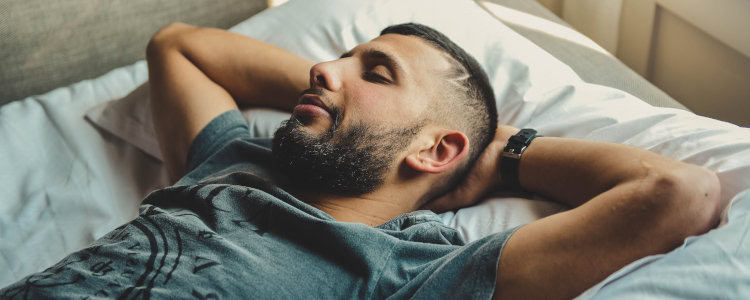
A wide selection of sleep edibles is available on most dispensary menus. Whether you’re looking for relief from pain or anxiety in order to get better sleep, there are edibles in a variety of different flavors, food types, and cannabinoid ratios.
The following are a few highly-reviewed recommendations to help get your search started.
Cannabis-Infused Gummies for Sleep (Dreamt)
- 10 mg THC, 2 mg CBD per gummy
- 10 gummies in each pack
These sleep gummies are infused with THC and CBD, as well as L-theanine and valerian root, which are also helpful sleep aids. They are also only five calories each and are sugar and gluten-free.
Dream Lavender Mints 3:1 (Mr. Moxey’s Edible)
- 7.5 mg CBD, 2.5 mg THC
- 20 mints in each package
Mr. Moxey’s offers this high-CBD, low-THC mint infused with valerian root and passion flower. This mix of cannabinoids and sleep-inducing ingredients may be the perfect fit for a restful evening.
Cacao Keto Bites 1:1 (Pantry)
- 5 mg THC, 5 mg CBD
- 20 pieces in a jar
These chocolate bites are a nice microdose blend of THC and CBD for those needing a more mellow, balanced experience.
Sleep CBN Tablingual (Level)
- 5 mg of CBN
- 15 tablets per package
Level has a unique low-dose sleep formulation with a tablet containing isolated CBN. While CBN on its own may not induce heavy sedating effects, adding it to your THC-rich routine of other edibles or products may enhance the sleep effects of THC.
Although sometimes categorized as edible, these are fast-acting sublingual tablets designed to be placed under the tongue for fast-acting results.
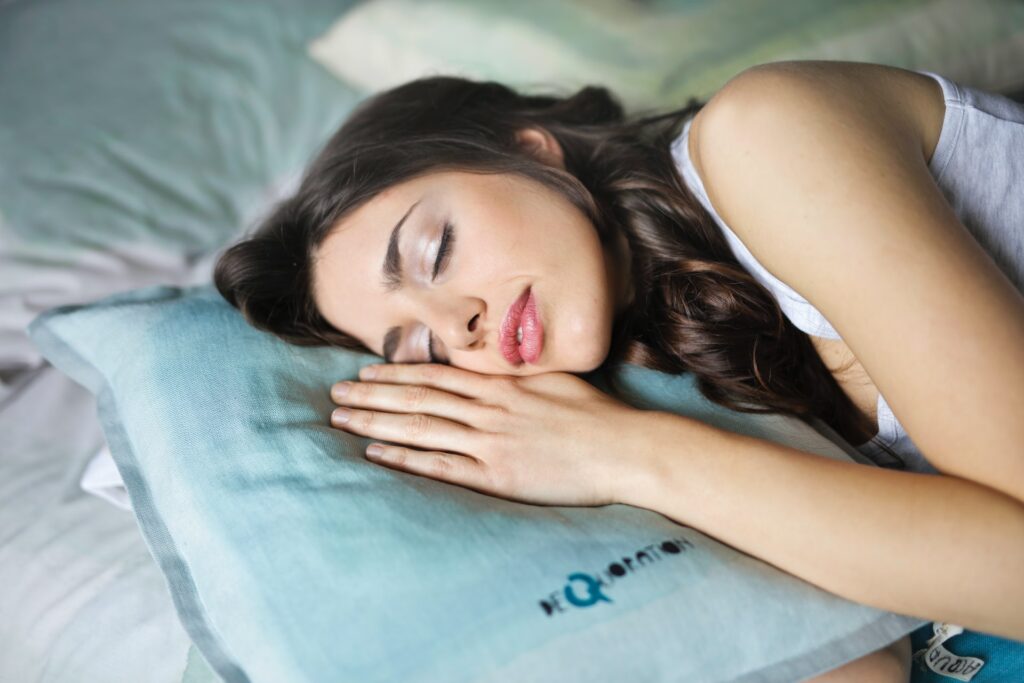
Rest, CBD Soft Gels (Care By Design)
- 25 mg CBD, 5 mg CBDA, 2.5 mg CBN, 7.5 mg THC per capsule
- 15 capsules per package
These capsules will digest in the body similarly to edibles, without the added ingredients. They are dosed with a generous array of cannabinoids that can work together to help you get better rest. The high CBD formula may be ideal for those seeking a less intoxicating experience.
Midnight Blueberry Camino, 5:1 CBN (Kiva)
- 5 mg THC, 1 mg CBN per gummy
- 20 pieces per package
These gummies are formulated with CBN, chamomile, and lavender extract to help induce restful effects. Each piece is a low dose for those who may only need a little help to get them through the night.
Shut Eye Tin, Sleep & Serenity (Kin Slips)
- 5 mg CBN, 5 mg CBD per slip
- 10 slips per package
Kin Slips are sublingual strips that are conveniently and discreetly placed under the tongue. Their sleep formula contains no THC, for people looking for rest without the intoxicating experience.
Tranquility 1:1:1 (Kanha)
- 5 mg CBD, 5 mg THC, 5 mg CBN per gummy
- 10 gummies per package
Kanha’s Tranquilly gummies have a balanced ratio of cannabinoids designed to help induce many relaxing effects to support your sleep.
Dark Chocolate Bar, Mega Mini (Chill)
- 50 mg THC per piece
- 2 pieces per package
For some experienced users, even medical cannabis patients, a good night’s rest is just a macro dose away. This product is a dosage for those needing high-potency amounts without consuming a whole package of edibles. Dark chocolate can also be a helpful ingredient for sleep.
Strawberry 20:1 (Wyld)
- 20 mg CBD, 1 mg THC per gummy
- 10 gummies per package
Sometimes a high-CBD product is better for specific sleep issues, especially those related to inflammation or anxiety. Alternatively, you may want a sleep aid that doesn’t carry the intoxicating feeling of THC. Wyld’s strawberry CBD gummies offer a generous dosage of CBD per gummy that can be taken at once or split into two doses.
Dark Chocolate Pomegranate, Sleep (Papa & Barkley)
- 2 CBD, 4 THC, 1 CBN, per piece
- 20 pieces per package
Papa & Barkley has a super distinctive combination of cannabinoids and ingredients in their sleep edible. They offer low-dose dark chocolate pieces infused with fresh-pressed solventless rosin. This gives users a full-spectrum extract with a range of terpenes to add to the cannabinoid formulation to help induce sedating effects.
Why Choose Edibles for Sleep?

While methods like smoking and tinctures can still be effective forms of consumption for getting help with sleep, edibles provide unique benefits that make them ideal for some users.
Edibles are an option for treating sleep issues for a few reasons.
- Long-lasting effects. While the onset time of smoking, vaping, or tincture may be quicker, the effects may only last a few hours. Edibles may be helpful for people who struggle to sleep through the night because the effects are long-lasting, sometimes up to 12 hours.
- Potent. Whether taking a high-THC, high-CBD, or a ratioed edible, after they digest, the effects typically feel stronger compared to other consumption methods. This makes edibles an option for high-tolerance users.
- Accessible. Edibles are one of the most popular products on the legal cannabis market. Although cannabis-derived THC-rich edibles may not be available in every state, hemp CBD options are accessible in most states.
- Variety of options. There are a range of edible types and flavors that include cannabinoids for sleep, meaning there's an option to fit every user’s needs. Since sleep issues can be specific to the individual, having various options can make finding one that fits those needs easier.
- Discreet. Edibles can be eaten privately and cause no clouds of smoke or pungent odors. It’s easy to take one right before bed without taking any extra steps for setup or clean up.
- Precisely dosed. Edibles are incredible for getting the same dose for each experience. Although other factors may play a role in the final effects of the edible, they are much easier to anticipate every night, since each piece will have the same amount of cannabis.
- Affordable. There is a wide range of price points for edibles in most dispensaries, from affordable to higher-end. Edibles are also simple to make at home, saving consumers a lot of money, especially if edibles are their primary form of consumption.
Tips for Using Edibles for Sleep
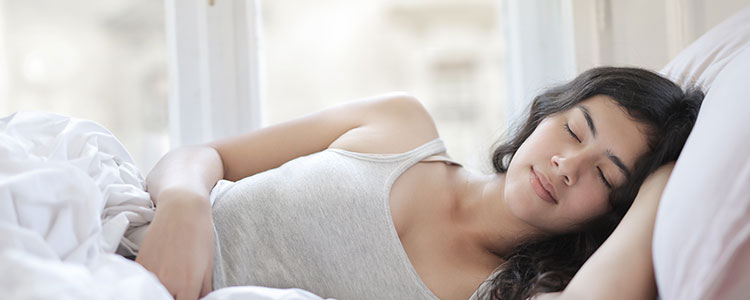
Several factors can affect how an edible will feel, and it may take a few sessions or trying more than one product to find the right fit for your sleeping issues. While several different factors can affect the feeling edibles ultimately have, there are some tips to consider to help make sure you get the best edible experience to help your sleep.
- Choose the right edible. Consider what your specific needs are. This may mean you consult with a healthcare professional first. High-CBD may be a better option for some, while a ratioed product with other cannabinoids may be more suitable for others. Traditionally, indica varieties of edibles are formulated to have heavy body effects, which can be better for sleep issues. Full-spectrum edibles, with a ratio of THC to CBD contain a range of cannabinoids, like CBN, and are usually categorized as hybrid options. Some brands offer strain-specific edibles, in which case the indica options might be the best place to start for sleep-related issues.
- Be mindful of the delayed onset time. Unlike traditional consumption methods, edibles can take 30 minutes to two hours to take effect. If you don’t feel the effects immediately, you'll want to avoid taking more. It’s better not to feel the effects than to take too much and be uncomfortable or induce excessive sedating effects. For sleep, it’s best to take the edible about an hour before you want to fall asleep. Depending on the dosage, taking it too close to bedtime may lead to drowsy feelings in the morning or oversleeping.
- Check the label. Make sure the ingredients and cannabinoids in the edible are suitable for your needs. It’s easy to mix up similar packaging.
- Store correctly. Edibles, like any food item, expire and are not suitable for consumption beyond a certain point. Store the edibles in an air-tight, sealed container in a cool dark place to maintain the freshness of your product. Edibles purchased in the dispensary will be labeled with their ‘best by’ date. Edibles made at home should be stored properly and disposed of when they expire.
- Avoid taking too much. It can be tempting to start with a high dose of edibles, especially if you are struggling severely with sleep and are eager to rest. However, taking too much may cause adverse and unwanted effects. A dose that’s too high may cause excessive sedating effects that could cause you to oversleep or induce anxiety that may cause you to stay awake. It’s best to start your journey with sleep edibles at a low dose before trying a higher one.
- Try it more than once but be open to other options. It may be best to try an edible on more than one occasion to see how it truly affects you – 3-4 times, if you’re a beginner. If your current one isn’t working, be open to trying higher doses (in small increments), other ratios of cannabinoids, or other brands. If you are a medical cannabis patient or dealing with medical sleep issues, it may be best to consult your doctor before trying new products.
- Prepare for your morning. If this is your first time taking edibles for sleep, it may be best to ensure your morning is set up for success. Set your alarms, have water by your bed, and maybe have a leisurely breakfast ready. Edibles may cause some grogginess the following day if the dose is too high, taken too close to falling asleep, or you are just starting to consume edibles.

Fall asleep faster and wake up feeling more rested with our comprehensive (and completely free) patient’s guide to medical cannabis for sleep troubles.
Sources:
¹ Calabrese, Edward J., and Alberto Rubio-Casillas. “Biphasic Effects of THC in Memory and Cognition.” European Journal of Clinical Investigation, vol. 48, no. 5, 2 Apr. 2018, p. e12920, https://doi.org/10.1111/eci.12920. Accessed 18 June 2019.
The information in this article and any included images or charts are for educational purposes only. This information is neither a substitute for, nor does it replace, professional legal advice or medical advice, diagnosis, or treatment. If you have any concerns or questions about laws, regulations, or your health, you should always consult with an attorney, physician or other licensed professional.

